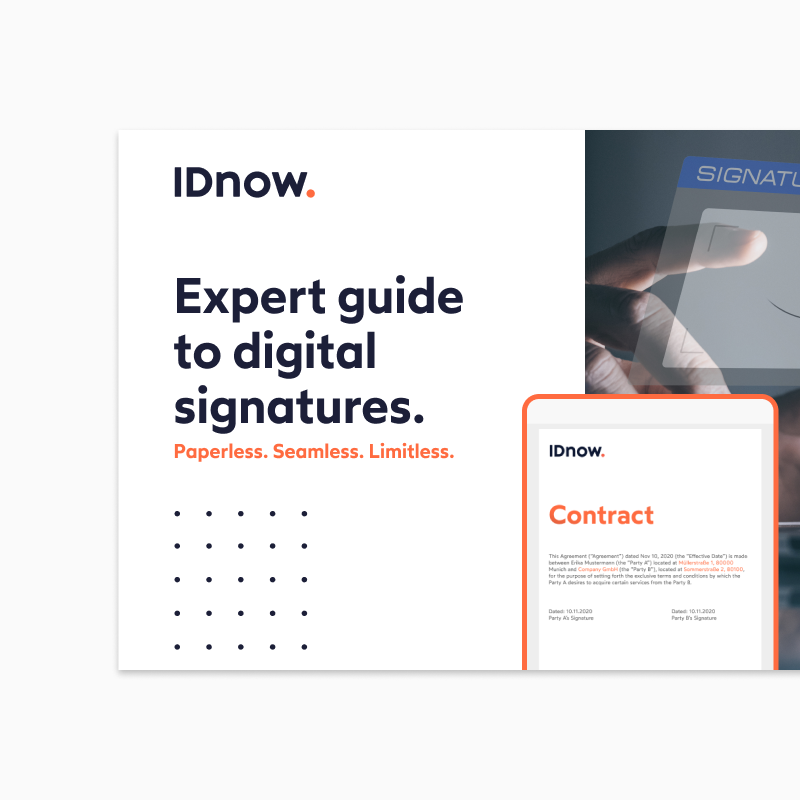Thinking of switching to IDnow? Get a 1-on-1 call with one of our experts.
Do you need help with your ID verification? Contact our support.
With IDnow eSign, we offer our customers a complete, digital application process without media disruptions. From the credit request right through to the contract conclusion, the customer can undertake all steps digitally. Receiving the credit is therefore even quicker and easier for more people.
Arie Wilder | COO | auxmoney

Thinking of switching to IDnow? Get a 1-on-1 call with one of our experts.
Do you need help with your ID verification? Contact our support.
Compliant contract signing
With IDnow eSign signing contracts with your customers online has never been simpler.
Traditionally-required handwritten signatures can be substituted with a Qualified Electronic Signature (QES), which is equally valid from a legal perspective. In just a few minutes, IDnow eSign enables contract conclusion without additional hardware.
All the customer needs is Internet access and their valid ID document; either on a computer with a webcam or on a smartphone or tablet. Following identification via IDnow VideoIdent, the customer will then be directed to the contract signing – all in the same process. This creates a superior user experience, which in turn will improve your conversion rates. In addition, IDnow eSign also offers a “wallet” feature. This allows users to sign additional contracts electronically without having to identify themselves a second time.
High level of legal compliance in accordance with the strict regulatory requirements throughout the European Union and beyond.
Dedicated and supportive ident and fraud-spotting experts in over 10 ident centers in Germany and Europe.
Excellent usability, optimized for desktop, tablet, mobile and POS processes, and confirmed by very good user ratings.
In just a few minutes, IDnow eSign enables contract conclusion without media disruption or additional hardware. All the customer needs is Internet access, a computer with a webcam, a smartphone or tablet and their valid ID document. The customer will first be identified through IDnow VideoIdent before being taken directly to the contract signing. Everything happens within the same seamless process. This allows for a great user experience, which in turn improves the conversion rate.
Regulatory & Compliance
In order to obtain a qualified electronic signature (QES) with IDnow eSign, the user is identified online via the web or an app. Even before the identification begins, and again at the end of the process, the user is shown the contract to be signed. The user checks the contract online and begins the signing process. This can be done from the comfort of the user’s own home or using a mobile device.
With the help of IDnow VideoIdent, an Ident Specialist asks the customer the legally required questions. Recordings are made of the front and back of the identity document, as well as a photo of the customer and the identity document details are compared. The customer declares their agreement with the contract conclusion using a check mark. The certificate and the qualified electronic signature (QES) will be issued by our partner DocuSign, which are a Trust Service Providers (TSP) according to the eIDAS Regulation.
